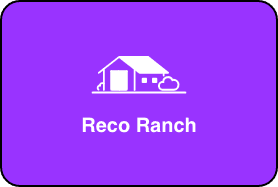Your Guide to Intensive Outpatient Programs in 2024


Embarking on Your Recovery Journey
Understanding Addiction and Recovery
The path to recovery from substance use disorders begins with a clear understanding of what addiction is and how recovery can reshape lives. Addiction is often characterized by an uncontrollable desire to use substances despite harmful consequences. Recovery, on the other hand, is a journey towards regaining control, improving health and wellness, and striving for a fulfilling life without dependency. This process requires commitment, support, and the right treatment plan tailored to individual needs. At RECO Institute, we see recovery as a transformative phase where individuals learn to navigate challenges with resilience and hope, supported by a community that understands the journey intimately.
The Importance of Choosing the Right Treatment Program
Selecting the most suitable treatment program is pivotal in the recovery process. The effectiveness of your rehabilitation strongly depends on finding a program that addresses not only the physical aspects of addiction but also its psychological components. Treatment programs vary considerably in their approaches, facilities, and support systems. Factors like the program’s philosophy, the qualifications of its staff, and the types of therapies offered should be carefully considered. With outpatient addiction treatment, particularly intensive outpatient programs (IOPs), individuals can maintain their daily routines while accessing the therapy and support needed for recovery. At RECO Institute, we emphasize choosing a program that aligns with your recovery goals and personal circumstances, ensuring a more sustainable transition to sobriety.
Why Outpatient Programs Can Be the Right Choice
For many recovering individuals, outpatient programs, especially IOPs, present a balanced option between rigorous treatment and the flexibility to engage in everyday life. IOPs offer a structured therapy schedule without the residential stay required by inpatient programs. This model supports individuals who have work, school, or family commitments but still require intensive treatment. Through intensive outpatient programs, participants have access to a wide array of services including individual counseling, group therapy, and educational sessions on managing substances and improving emotional well-being. These programs are especially beneficial for those transitioning from inpatient treatment or for those whose addiction is at a stage where full-time commitment to a residential facility is not necessary. At RECO Institute, outpatient treatment is designed to provide a comprehensive approach to recovery, blending traditional therapies with holistic practices within a supportive community framework.
Intensive Outpatient Programs Explained
What Makes Intensive Outpatient Programs Unique
Intensive Outpatient Programs (IOPs) occupy a vital niche in the continuum of care for substance abuse and mental health disorders. Unlike standard outpatient services, IOPs provide a structured treatment environment, offering patients access to rigorous therapeutic interventions without necessitating an overnight stay. This arrangement is especially beneficial for those who have personal or professional obligations that make full-time residential treatment untenable. IOPs are characterized by their intensity and focus, providing a level of care that supports serious recovery while allowing participants to apply learning in real-world environments. This unique blend of flexibility and intensity ensures that individuals can maintain their day-to-day responsibilities while engaging in a comprehensive treatment program. Programs typically include a mix of individual therapy, group sessions, and educational workshops aimed at fostering skills for managing sobriety and improving mental health.
Comparing IOPs to Inpatient and Traditional Outpatient Services
Understanding the differences between IOPs, inpatient, and traditional outpatient services is crucial for those considering their treatment options. Inpatient programs require patients to stay at a facility 24/7, offering intensive support and a structured environment free from external triggers. While highly effective, especially in the early stages of recovery, inpatient treatment may not be feasible for everyone due to its time and resource demands. On the other end of the spectrum, traditional outpatient services offer the most flexibility but the least structure, suitable for individuals with mild substance use disorders or those nearing the end of their recovery journey.
IOPs sit between these two extremes, providing a middle ground that incorporates structured treatment and personal freedom. Participants engage in several hours of treatment several days a week, which is more intensive than traditional outpatient care but less consuming than inpatient programs. This approach allows individuals to receive high-quality care, including tailoring treatment for substance abuse recovery while living at home and maintaining a semblance of their normal daily life. Through this comparison, it’s evident that IOPs offer a dynamic solution capable of meeting diverse patient needs.
Core Components of Intensive Outpatient Programs
The core components of Intensive Outpatient Programs are designed to tackle the various aspects of addiction and mental health recovery head-on. Central to most IOPs is a combination of individual counseling and group therapy sessions. Individual counseling provides a private setting for clients to explore personal triggers, develop coping strategies, and delve into personal issues underpinning substance use. In contrast, group therapy offers mutual support, shared learning, and the cultivation of social skills within a community facing similar challenges.
IOPs also typically incorporate educational sessions on the nature of addiction, relapse prevention techniques, stress management tools, and strategies for rebuilding relationships affected by substance abuse. Holistic elements, such as mindfulness, yoga, or art therapy, may be included to support overall mental and emotional well-being. Another critical component is the integration of support for sober living alongside outpatient treatment, which provides a structured and supportive living environment conducive to recovery. This combination of treatments and supports ensures that IOP participants receive a comprehensive care package tailored to promote sustained recovery and a return to normalcy in their personal and professional lives.
The Role of Sober Living in Conjunction with Outpatient Care
How Sober Living Supports Outpatient Addiction Treatment
Sober living homes provide an essential bridge between intensive outpatient programs (IOPs) and the full return to daily life, offering a supportive and structured environment that fosters the skills necessary for long-term recovery. At a foundational level, sober living and outpatient care work hand-in-hand to reinforce the lessons and coping strategies learned during outpatient therapy sessions. Individuals in sober living are encouraged to apply these strategies in a real-world setting, under circumstances that might mimic their lives outside of treatment. This dual approach allows for an immediate application of recovery skills, such as support for sober living alongside outpatient treatment, ensuring that the transition back into society is as smooth and relapse-resistant as possible.
Sober living homes, particularly those affiliated with institutions like the RECO Institute, often incorporate a schedule that complements outpatient program commitments. This may involve designated times for group meetings, therapy sessions, or work commitments, allowing residents to craft a balanced routine that supports both their recovery and personal development. Furthermore, living among peers who are all working towards similar goals creates a natural network of support and accountability, a critical factor in the journey to sustained sobriety.
The Benefits of a Supportive Environment
The environment in which an individual recovers can dramatically influence their recovery outcomes. Sober living residences offer a supportive environment that minimizes the risk of relapse by providing stability, peer support, and a substance-free living space. These homes are more than just a haven from external triggers, they are vibrant communities where residents practice new life skills in a controlled and supportive setting.
RECO Institute’s sober living residences go further by exploring sober living options for a supportive environment, which focuses on the development of healthy relationships, the establishment of routine, and the importance of accountability. By living in a structured environment, residents can focus on their recovery without the immediate pressures of outside stressors. This setting also provides continuous opportunities to engage in sober activities, fostering a lifestyle that places wellness and recovery at its core.
Moreover, support systems built within these communities play a significant role in reinforcing an individual’s dedication to recovery. From shared experiences to collective successes, the bonds formed in sober living can be life-changing, providing both motivation and comfort during challenging times.
Sober Living Residences: A Safe Space for Recovery
A core aspect of the recovery journey is the establishment of a safe and stable environment that nurtures an individual’s path to sobriety. Sober living residences are specifically designed to meet these needs, offering a secure space where individuals can continue their recovery with the support of a like-minded community. The importance of such an environment cannot be overstated, it is where the theoretical aspects of treatment are put into practice daily.
RECO Institute’s sober living residences, located in picturesque Delray Beach, Florida, are tailored to serve this very purpose. These homes provide not just a bed to sleep in, but a holistic approach to recovery that addresses the physical, emotional, and social facets of addiction. Regular house meetings, accountability practices, and a dedicated house manager ensure that the structure necessary for recovery is consistently maintained, while also providing flexibility for personal growth and autonomy.
Access to ongoing outpatient treatment, coupled with the immersive environment of sober living, creates a comprehensive care model that significantly enhances the possibility of achieving and maintaining long-term sobriety. Emphasizing the development of a sober social network and engaging in community-based recovery activities, such as attending Alcoholics Anonymous meetings near or participating in local sober events, enriches the recovery experience, making sobriety not just a goal but a way of life.
Together, intensive outpatient programs and sober living residences provide a multi-tiered approach to addiction treatment and recovery, ensuring that individuals have the continuous support and resources necessary to build a foundation for a sober, fulfilling life.


Reco Institute’s Approach to Outpatient Addiction Treatment
Combining Recovery Housing with Intensive Outpatient Care
RECO Institute has pioneered a unique model that strategically pairs recovery housing with intensive outpatient care to support individuals in their journey toward lasting sobriety. This dual approach not only addresses the clinical aspects of addiction but also emphasizes the importance of a stable, supportive environment during recovery. Individuals have the opportunity to reside in sober living residences, where they are surrounded by a community of peers committed to a substance-free lifestyle. This setting is integral for applying the lessons learned in outpatient sessions to daily life, providing a safe space to navigate challenges and celebrate milestones.
Access to both sober living and intensive outpatient programs (IOPs) facilitates a seamless transition from highly structured care to more independent living. By staying in RECO Institute’s upscale sober living homes located in Delray Beach, Florida, clients are encouraged to develop autonomy while having access to ongoing professional support. Through structured schedules, group activities, and individual therapy, participants are equipped with tools for managing stress, avoiding triggers, and building a network of supportive relationships.
The Integration of Behavioral Health Services
At the heart of RECO Institute’s outpatient addiction treatment are comprehensive behavioral health services that address not only substance abuse but also the underlying psychological and emotional factors contributing to addiction. The integration of behavioral health services into the outpatient program ensures a holistic approach to recovery, treating the person as a whole rather than isolating the addiction itself. Skilled professionals, including therapists, counselors, and recovery coaches, work collaboratively to create a treatment plan that encompasses both mental and physical health.
Group therapy sessions offer a platform for sharing experiences and learning from others, promoting growth and understanding in a communal setting. Individual counseling, on the other hand, provides a more personalized space to delve into personal challenges, traumas, and the root causes of substance dependence. This comprehensive service array is designed to foster resilience, empowering individuals to navigate life’s complexities without reliance on substances.
Personalized Addiction Treatment Plans
Recognizing that recovery is a deeply personal process, the RECO Institute places significant emphasis on creating personalized addiction treatment plans. Tailored to meet the unique needs and goals of each individual, these plans evaluate various aspects of the client’s life, including their history of substance use, mental health status, personal relationships, and professional obligations. By considering these elements, treatment specialists can determine the most appropriate therapies, activities, and support necessary for each person’s recovery journey.
The facility’s commitment to customization extends beyond clinical interventions to include plans for social reintegration and life skill development. As part of the outpatient program, participants engage in activities that rebuild confidence and competence in navigating the everyday challenges of sober living. Emphasizing the development of a balanced lifestyle, the RECO Institute supports individuals in discovering new hobbies, establishing healthy routines, and setting personal and professional goals. This personalized approach ensures that every client has the tools and resources needed for achieving long-term success in sobriety, fostering a sense of purpose and direction post-treatment.
Core Therapies and Services in IOP
Individual Counseling and Group Therapy Sessions
In the realm of Intensive Outpatient Programs (IOPs), individual counseling and group therapy sessions stand as the cornerstone of the treatment process. These therapeutic modalities are meticulously designed to address the nuanced and complex nature of substance use disorders and mental health challenges. Individual counseling offers a private, supportive setting where clients can delve deep into personal issues, uncover the root causes of addiction, and work through emotional distress with a qualified therapist. It’s a space where the personalization of treatment takes priority, allowing therapeutic strategies to be tailored to the specific needs and goals of the individual.
In contrast, group therapy sessions harness the power of collective experience, enabling participants to share their struggles and successes in a safe and understanding environment. This communal aspect of recovery fosters a sense of belonging and solidarity among group members, facilitating healing through shared experiences. The diverse range of topics covered in group sessions, from relapse prevention strategies to techniques for managing stress and improving communication, equips participants with empowering their sobriety with the best AA meetings, and similar support networks, complementing the recovery journey with invaluable peer insights and support.
Addiction Counseling and Chemical Dependency Treatment
Effective management of chemical dependency is another core element of IOPs, focusing on both the physiological and psychological facets of addiction. Addiction counseling sessions are led by specialized professionals who understand the intricacies of substance dependence and its impact on the brain and behavior. These sessions aim to educate clients about the nature of addiction, helping them to develop strategies for coping with cravings, avoiding triggers, and maintaining sobriety in the long term.
Chemical dependency treatment often includes evidence-based approaches such as Cognitive Behavioral Therapy (CBT), Dialectical Behavior Therapy (DBT), and Motivational Interviewing (MI), aimed at changing harmful patterns of thought and behavior that contribute to substance use. This multifaceted approach ensures that clients not only achieve physical detoxification but also make significant psychological strides toward recovery. The goal is to empower individuals with the knowledge and skills needed to reclaim control over their lives, fostering a sense of agency and self-efficacy in the face of addiction’s challenges.
Holistic Recovery Programs and Mental Health Support
Holistic recovery programs advocate for the treatment of the whole person, integrating physical, emotional, mental, and spiritual healing processes. These programs underscore the interconnectedness of various aspects of well-being, striving for balance and harmony as foundational pillars of recovery. Incorporating elements such as yoga, meditation, art therapy, and nutritional counseling, holistic approaches aim to enhance mental health support by providing a broad spectrum of coping mechanisms that extend beyond traditional therapy techniques.
This comprehensive perspective on recovery recognizes that mental health support is critical, not only for addressing co-occurring disorders but also for cultivating resilience, self-understanding, and emotional regulation. Resources and interventions such as accessing a mental health center near you can provide additional layers of support, ensuring that individuals have access to the care they need. By embracing a holistic view of recovery, IOPs are equipped to offer a more inclusive and effective approach to addiction treatment, one that nurtures all dimensions of the human experience.
Managing Recovery: Strategies and Support Systems
Relapse Prevention Strategies
Navigating through recovery requires not only a commitment to sobriety but also a comprehensive plan to prevent relapse. At RECO Institute, understanding and implementing effective strategies for relapse prevention is a cornerstone of our Intensive Outpatient Programs (IOP). These strategies are multi-faceted, and tailored to address both the psychological triggers and the environmental factors that might jeopardize recovery. Essential components include developing coping mechanisms to handle stress and emotional turmoil, avoiding high-risk situations, and engaging in healthy activities that support physical and mental well-being. In addition, participation in group therapy and addiction counseling offers opportunities for learning and practicing these skills in a supportive environment, allowing individuals to gain confidence in their ability to maintain sobriety in the face of challenges.
Relapse prevention also involves an ongoing evaluation of the individual’s recovery plan, with adjustments made as necessary to better meet their evolving needs and circumstances. By cultivating a deep understanding of personal triggers and effective coping strategies, alongside a proactive approach to managing life stresses, individuals are empowered to navigate their recovery journey with greater resilience and preparedness.
The Role of Recovery Coaching and Peer Support
In the intricate landscape of addiction recovery, peer support and recovery coaching emerge as vital components that bolster long-term success. At RECO Institute, we deeply value peer support’s role in sustained recovery, recognizing the profound impact that shared experiences and mutual encouragement have on individuals navigating the path to sobriety. Peer support groups, including sober living communities and recovery meetings, offer a platform where individuals can connect, share their stories, and offer insights and encouragement to one another. This sense of community fosters a shared understanding and a unified commitment to recovery, creating a resilient support network that empowers individuals to face the challenges of sobriety together.
Recovery coaching is another integral service that complements the support system, guiding individuals through the complexities of addiction recovery. Recovery coaches work closely with individuals, helping to set achievable goals, develop effective coping strategies, and navigate the hurdles that may arise along the way. This personalized guidance ensures that individuals feel supported and understood, bridging the gap between clinical treatment and everyday life challenges. Together, recovery coaching and peer support encapsulate a holistic approach to addiction recovery, focusing on emotional, social, and practical aspects of sobriety maintenance.
Navigating Sobriety Maintenance and Continuing Care
Maintaining sobriety and engaging in continuing care is critical for long-term recovery success. At RECO Institute, we recognize that recovery is an ongoing process that doesn’t end after completing an outpatient program. The journey of navigating your journey in addiction recovery encompasses various phases, including active treatment, sobriety maintenance, and engagement in continuing care plans. Sobriety maintenance involves a daily commitment to the practices, habits, and strategies learned during treatment, reinforced through regular participation in support groups, therapy, and healthy lifestyle choices.
Continuing care, on the other hand, refers to the organized support and interventions that follow the initial phase of intensive treatment. This can include check-ins with counselors, regular group meetings, and engagement in alumni programs. These resources provide not only ongoing support but also a sense of accountability and belonging to a community that values and supports each individual’s recovery journey. Ensuring accessibility to continuing care services enables individuals to remain grounded in their recovery, especially during times of stress or uncertainty. By prioritizing sobriety maintenance and active participation in continuing care, individuals forge a path toward a resilient, sober life, equipped with the tools and support necessary for navigating the complexities of long-term recovery.
The Importance of Tailored Treatment Options
Assessing Individual Needs for Substance Abuse Treatment
When embarking on the road to recovery, one size does not fit all. This is particularly true in the context of substance abuse treatment, where the complexity and variety of addiction patterns demand a personalized approach. RECO Institute understands that each individual’s journey to recovery is unique, characterized by their history, substance of choice, severity of addiction, and co-occurring mental health disorders. Assessing these individual needs is the critical first step in crafting an effective treatment plan.
This comprehensive assessment covers not only the medical and psychological aspects of addiction but also considers social, familial, and vocational factors that influence an individual’s life. Such a detailed evaluation helps in exploring addiction treatment options in Florida, ensuring that the treatment plan not only addresses the addiction itself but also empowers the individual for successful reintegration into daily life. By identifying specific needs, addiction specialists can customize treatment recommendations that align with each person’s unique circumstances and recovery goals.
Customizing Outpatient Rehab Services
After a thorough assessment, the next crucial step is customizing outpatient rehab services to align with the identified needs. At RECO Institute, the customizable aspects of an IOP (Intensive Outpatient Program) span from the duration and intensity of treatment to the specific therapies and support services offered. This flexibility enables individuals to engage in treatment while maintaining their responsibilities at work, school, or home, making recovery an integrated part of their daily lives.
Customization also extends to the type of therapies offered within an IOP, including evidence-based psychological therapies, peer support groups, and holistic wellness programs. By creating a treatment plan that resonates with an individual’s lifestyle, interests, and challenges, the chances of meaningful engagement and long-term recovery are significantly enhanced. The ultimate goal is to provide a supportive, structured environment that encourages growth, healing, and sobriety through personalized care.
The Benefits of Dual Diagnosis Treatment for Comprehensive Care
For many individuals struggling with substance use disorders, addiction is often intertwined with mental health issues, creating a complex web of challenges that requires an integrated treatment approach. Dual diagnosis treatment, which addresses both addiction and co-occurring mental health disorders simultaneously, is a cornerstone of comprehensive care at RECO Institute.
The benefits of this approach are manifold. Firstly, it acknowledges the interconnected nature of mental health and substance abuse, enabling therapists to address root causes rather than just symptoms. This holistic view fosters more effective healing and long-term management strategies. Secondly, dual diagnosis treatment ensures continuity of care, reducing the risk of treating only one condition while neglecting the other, which can lead to relapse.
Incorporating both pharmacological management and psychotherapy, dual diagnosis treatment aims to stabilize mental health while supporting addiction recovery. Through this coordinated care, individuals are better equipped to understand their behaviors, manage their symptoms, and build a resilient foundation for their recovery journey.
Achieving Long-term Success in Recovery
Building a Stable Environment for Long-term Recovery
For those embarking on a recovery journey, the establishment of a stable, substance-free environment is paramount. This foundation not only supports initial steps toward sobriety but also serves as a cornerstone for long-term success. A stable recovery environment encompasses both the physical space and the social atmosphere in which an individual spends their time. This environment must be free of triggers that might tempt one back into substance use. To this end, the RECO Institute places a strong emphasis on providing sober living residences that are not only safe and comfortable but also conducive to healing and personal growth. The support found in these residences, characterized by peer encouragement and professional guidance, nurtures the resilience needed to face life’s challenges without resorting to substance use. Additionally, participation in structured daily routines and activities fosters a sense of normalcy and purpose, further anchoring individuals in their recovery journeys.
Engaging with the Recovery Community
The role of the recovery community in ensuring long-term success cannot be overstated. Engagement with others who are on similar paths provides invaluable support, understanding, and camaraderie. At RECO Institute, we facilitate connections among our clients through group therapy sessions, community activities, and shared living situations. These interactions create a robust support network that acts as a safety net, providing both emotional support and practical advice. Beyond the confines of treatment and sober living, participating in wider community activities, such as Narcotics Anonymous meetings nearby, can offer fresh perspectives and additional layers of support. With each shared experience and success story, members of the recovery community strengthen their commitment to sobriety, creating a cycle of positive reinforcement that benefits all involved.
Leveraging Alumni Programs and Support Groups
An often overlooked aspect of achieving long-term recovery success is the continuous support that comes from alumni programs and support groups. These platforms enable those who have successfully navigated the early stages of recovery to remain connected to their treatment community, drawing on collective wisdom and resources. RECO Institute’s alumni network plays a critical role in this ongoing process, offering graduated clients opportunities to give back, share their stories, and mentor those just starting their recovery journey. Such engagement helps to solidify one’s sobriety while reinforcing the message that recovery is a lifelong commitment requiring dedication and active participation. Furthermore, access to alumnus-led educational workshops, social events, and service projects enriches the recovery experience, helping individuals to develop new interests and forge meaningful relationships based on shared values and goals. Through these alumni networks and support groups, the continual journey of recovery becomes not just manageable but also deeply rewarding.


Outpatient Treatment Schedules and Flexibility
Balancing Treatment with Everyday Life
Intensive Outpatient Programs (IOPs) are structured to ensure that individuals can receive effective treatment for substance use disorders while maintaining their day-to-day responsibilities. This balancing act is crucial for people who have commitments to work, education, or family, as it allows them to integrate their recovery process into their normal lives. The ability to attend therapy sessions, counseling, and support group meetings without upending one’s schedule fosters a more sustainable approach to recovery. It acknowledges that life continues alongside treatment and emphasizes the importance of learning to manage sobriety within the context of everyday activities and obligations. Such a balance is instrumental in preparing individuals for long-term success, as they cultivate coping skills and resilience in real-world settings.
The Flexibility of Outpatient Treatment Schedules
The flexibility offered by Intensive Outpatient Programs is a cornerstone of their appeal and effectiveness. These programs typically require participation for a certain number of hours per week, but the specific times and days can often be adjusted to fit the individual’s schedule. For instance, sessions may be available during the day, in the evening, or on weekends, providing options that accommodate different lifestyles and responsibilities. This adaptability ensures that recovery does not have to come at the expense of one’s career, education, or family life. By facilitating a customizable approach to treatment scheduling, the RECO Institute ensures that more individuals can access and engage with the recovery tools and support they need. Additionally, this flexibility can significantly reduce the stress associated with managing recovery alongside other life commitments, a crucial factor in preventing relapse and promoting sustained sobriety.
Commitment and Consistency in Recovery
While the flexibility of outpatient programs is a significant advantage, the foundation of any successful recovery is commitment and consistency. Despite the adjustable nature of IOP schedules, regular attendance, active participation in therapy sessions, and engagement with the recovery community are non-negotiable elements of the process. The effectiveness of the treatment is closely tied to the individual’s dedication to their recovery journey, highlighting the importance of consistency in attending sessions, following through with action plans, and utilizing the coping strategies learned during treatment. Commitment also extends to identifying withdrawal signs, seeking help when needed, and persistently working towards recovery goals, even outside of scheduled therapy times. The journey through addiction recovery is deeply personal yet universally demands perseverance, commitment, and consistency the bedrock upon which long-term sobriety is built. Through Steadfast engagement with the therapeutic process and a sincere commitment to personal growth, individuals can navigate the challenges of recovery and embrace a fulfilling, sober lifestyle.
Choosing the Right Outpatient Program for You
Evaluating Treatment Centers and Programs
When exploring options for outpatient programs, it’s essential to rigorously evaluate the treatment centers and the specific programs they offer. Start by researching their accreditation and the qualifications of their staff. This can give you an insight into the quality of care and the level of expertise you can expect. Consider the center’s treatment philosophy, whether it aligns with a 12-step program, employs a holistic approach, or integrates evidence-based practices into its therapy sessions. Additionally, look into the types of therapies offered, including individual counseling, group therapy, and any specialized services that might address your specific needs. Remember, the goal is to find a program where you feel secure, supported, and confident in the treatment provided.
Exploring various treatment options is a critical first step to ensure you find a fitting program that can offer comprehensive care tailored to your journey of recovery. For comprehensive insights into addiction treatment services, consulting resources and organizations dedicated to addiction recovery can provide clarity and direction in exploring addiction treatment services.
Questions to Ask When Considering an Outpatient Program
Once you’ve identified potential outpatient programs, having a set of questions ready can help you further narrow down your choices. Key questions might include:
- What is the typical duration of the program, and how many hours per week are required?
- Can the program’s schedule be tailored to accommodate work or school commitments?
- What types of addiction and mental health disorders does the program specialize in treating?
- How does the program integrate family involvement in the treatment process?
- What kind of aftercare support and relapse prevention strategies does the program offer?
These questions aim not only to provide you with detailed information about the program but also to gauge the level of individualized care and support you can expect. An open and honest discussion with program representatives can reveal much about their approach to treatment and recovery.
Finding Sober Living and Outpatient Care Near You
For many, the journey to recovery includes finding a supportive and structured living environment, especially in the initial stages of outpatient care. Sober living homes offer a unique combination of independence and support, ideal for those transitioning from more intensive treatment settings or for individuals looking to strengthen their sobriety in a community of peers. When searching for sober living options, consider the location, the structure of the program, the rules of the house, and the types of support and amenities provided.
Accessibility to outpatient services while residing in sober living is another critical factor. The ideal scenario involves a seamless integration between sober living and outpatient care, facilitating an environment where recovery can thrive. Many programs, including those offered by the RECO Institute, provide comprehensive solutions that combine sober living with intensive outpatient services, ensuring that residents have access to consistent, quality care.
The synergy between sober living and outpatient care creates a powerful framework for recovery, allowing individuals to gradually build independence while remaining anchored in a supportive, therapeutic community. Whether in Delray Beach, Florida, or elsewhere, finding the right combination of sober living and outpatient care is crucial for creating a solid foundation for long-term recovery and success.
Navigating the Path to Recovery Together
Recovery from substance use disorders is often viewed as a journey that unfolds over time, embodying both challenges and victories. It is a path defined not just by the goal of sobriety but by the continuous process of personal growth and healing. This journey, while unique for everyone, shares a universal truth: it benefits immensely from guidance, support, and a compassionate community. At RECO Institute, we understand the complexities of this journey and are dedicated to walking alongside you every step of the way.
The Journey of Recovery as a Continuous Process
The pathway to recovery extends beyond the completion of any treatment program. It is a lifelong journey of maintaining sobriety, learning, and growing. This ongoing process involves developing new habits, coping strategies, and lifestyles that support a substance-free life. Understanding that recovery does not have a fixed endpoint helps in setting realistic expectations and preparing for the road ahead. Challenges are part of this journey, but with the right mindset and support, they can become opportunities for growth and resilience. Engaging with the recovery community, practicing relapse prevention strategies, and embracing a holistic approach to wellness is pivotal in navigating this path with confidence.
How RECO Institute Supports You Every Step of the Way
At RECO Institute, we prioritize a comprehensive support system that extends beyond intensive outpatient programs. Our approach integrates personalized therapy, recovery coaching, and community engagement to address the multifaceted nature of addiction recovery. Recognizing the importance of continued care, we offer a robust alumni program designed to foster lasting connections and provide ongoing support. This includes opportunities for mentorship, participation in social activities, and access to resources that reinforce the skills and strategies developed during treatment. Our dedicated team remains committed to your success, offering encouragement and assistance as you progress through recovery and face the complexities of everyday life.
Embracing a New, Sober Life with Confidence and Support
Transitioning to a sober lifestyle is an empowering process that opens the door to new opportunities, relationships, and personal achievements. Embracing this new life involves replacing old habits with healthy alternatives, rebuilding damaged relationships, and discovering newfound passions. RECO Institute encourages this transition by offering a supportive environment where individuals can explore their interests, engage in meaningful activities, and connect with others on similar paths. Our sober living residences provide a stable and nurturing space to practice sobriety in real-world settings, ensuring a smoother transition to independent living. With a focus on holistic well-being and community support, we aim to equip you with the confidence and tools necessary to lead a fulfilling, sober life.
At RECO Institute, we believe in the power of a supportive, understanding community to inspire and sustain recovery. By embracing our comprehensive care model, individuals can navigate the path to recovery with the assurance that they are not alone. Our team is here to support you every step of the way, offering the guidance needed to reclaim your life and embark on a journey of lasting sobriety and wellness.
Frequently Asked Questions
Question: What makes the Intensive Outpatient Programs (IOPs) at RECO Institute unique compared to other addiction recovery programs?
Answer: RECO Institute’s Intensive Outpatient Programs stand out due to our holistic and personalized approach to addiction recovery. We combine evidence-based treatment approaches with behavioral health services to address both the physical and psychological aspects of substance use disorders. Our programs include a mix of individual counseling, group therapy sessions, and specialized services like dual diagnosis treatment for comprehensive care. Moreover, the RECO Institute fosters a supportive environment through sober living residences and a robust alumni program, providing a seamless transition from treatment to everyday life. Our commitment to crafting personalized addiction treatment plans ensures that each client’s recovery journey is respected and nurtured, setting us apart as a leading provider of outpatient addiction treatment and behavioral health services in Delray Beach, Florida.
Question: In the blog post “Your Guide to Intensive Outpatient Programs in 2024”, how are IOPs at RECO Institute tailored to fit individual needs and schedules?
Answer: In our guide for 2024, we showcased how RECO Institute’s Intensive Outpatient Programs are designed with flexibility and personalization at their core. Recognizing that our clients have unique needs and commitments, we offer customizable outpatient treatment schedules that allow individuals to receive care without compromising on family, work, or educational responsibilities. Our programs provide various daytime and evening options, ensuring that treatment integrates smoothly into our clients’ lives. By focusing on individual counseling, group therapy, and holistic recovery programs, we adapt our substance abuse treatment plans to serve the specific recovery and mental health needs of each client. This personalized approach ensures that every individual at RECO Institute has access to the support and resources necessary for sustaining recovery and maintaining a balanced life.
Question: Can you explain the role of sober living in conjunction with outpatient care at RECO Institute and why it’s beneficial for long-term recovery?
Answer: Sober living plays an instrumental role in conjunction with our outpatient care services at RECO Institute, offering a structured, stable environment that is ideal for individuals in the early stages of their recovery journey. These sober living residences provide more than just a place to stay, they offer a supportive community where individuals can practice sobriety in real-life settings. This experience is invaluable for reinforcing the coping strategies and relapse prevention techniques learned in outpatient sessions. Living among peers who share similar goals fosters a sense of accountability and belonging, crucial factors for long-term recovery. Furthermore, our sober living homes in Florida are closely integrated with our outpatient programs, ensuring a seamless blend of clinical treatment and practical life skills development. This dual approach equips our clients with a comprehensive foundation necessary for achieving and sustaining a sober, fulfilling life beyond treatment.
Question: How does RECO Institute provide continuity of care through its alumni program for those who have completed the Intensive Outpatient Programs?
Answer: RECO Institute’s alumni program serves as a vital component of our continuum of care, emphasizing the importance of sustained support beyond the completion of our Intensive Outpatient Programs. Through this program, graduates become part of a vibrant, supportive community, gaining access to ongoing group meetings, social events, and workshops that emphasize sobriety maintenance and personal growth. The alumni network allows former clients to stay connected, share their experiences, and offer mutual support. This continuous engagement reinforces the coping skills and strategies developed during treatment, aiding in relapse prevention. By providing opportunities for alumni to mentor new clients or participate in community service, the program fosters a sense of purpose and belonging, further enhancing the recovery journey. RECO Institute is committed to supporting our clients at every stage of their recovery, demonstrating that sobriety and wellness are attainable and sustainable goals.
Question: What types of therapies and support services does the RECO Institute offer in its addiction treatment plans?
Answer: At RECO Institute, our addiction treatment plans are comprehensive, featuring a wide range of therapies and support services designed to address the multifaceted nature of substance use disorders. We offer individual counseling and group therapy sessions as core components of our Intensive Outpatient Programs, facilitated by experienced professionals skilled in addiction counseling and mental health support. Our evidence-based treatment approaches include Cognitive Behavioral Therapy (CBT), Dialectical Behavior Therapy (DBT), and Motivational Interviewing (MI), among others. We also provide specialized services such as dual diagnosis treatment for clients with co-occurring mental health conditions. Beyond traditional therapies, the RECO Institute embraces holistic recovery programs, incorporating activities like yoga, meditation, and art therapy to support overall well-being. Additionally, our sober living and outpatient care integration ensures that clients receive the practical support needed for navigating recovery in daily life. These diverse therapies and services reflect our commitment to personalized, comprehensive care at every stage of the recovery journey.















